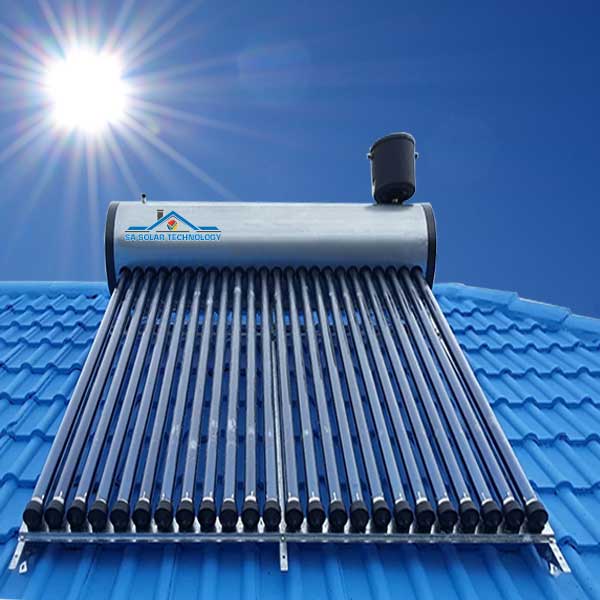Finding the best way to heat your water for your home is essential for both energy savings and long-term reliability. Solar geysers and heat pumps have become increasingly popular as options for energy-efficient water heating. In this article, we will explore how to choose heat pumps and solar geysers for your home.

How Solar Geysers Work
Solar geysers use the power of the sun to ensure hot water supply. Solar geysers use panels, pipes, and storage tanks. They work by absorbing heat from sunlight, which is then transferred to the water. This makes solar geysers an eco-friendly electricity-based systems.
Advantages of Using a Solar Geyser
One of the main benefits of using a solar geyser is their ability to reduce electricity consumption. By using free energy from the sun, they minimize your home’s energy costs. Not only do they help save money, solar geysers also help reduce your carbon footprint.
These systems work best in areas with plenty of sunshine. However, on overcast days, many systems include supplementary heating elements to keep your water heated.
Is a Solar Geyser Right for You?
Opting for a solar geyser is ideal for homeowners seeking an eco-friendly solution. Houses with good access to sunlight can get the most value from this heating method.
Of course, you need to factor in the installation expenses of a solar-powered geyser. While they reduce energy bills, the startup costs can be high. You may be eligible for rebates to offset the initial investment.
How Heat Pumps Work
Heat pumps work by transferring heat from the surrounding air to warm your water. Rather than generating heat directly, heat pumps move thermal energy. This makes them a cost-effective solution, due to their energy-saving design compared to traditional water heaters heat pumps Pretoria.
Why Choose a Heat Pump?
The main advantage to choose a heat pump water heater is its low energy consumption. Heat pumps typically consume much less electricity by over 50% compared to standard electric water heaters. This translates to major cost savings on utility costs.
Not only do heat pumps save energy, they are environmentally friendly. Since they don’t rely on fossil fuels, they reduce reliance on non-renewable resources compared to traditional heating methods.
Are Heat Pumps Right for You?
Heat pumps is a great choice interested in reducing electricity usage. Heat pumps are highly efficient in mild climates, as extremely cold weather can impact their efficiency.
Much like solar water heaters, heat pumps come with a higher upfront cost. The reduction in energy bills help you recover the initial cost over time.
Heat Pumps vs Solar Geysers
Both solar geysers and heat pumps are excellent choices for eco-friendly water heating. Each one comes with its own advantages and considerations. Here’s how they compare:
Energy Efficiency: Solar geysers rely on sunlight, while heat pumps require some electricity but still save energy.
Initial Investment: Solar geysers typically have higher upfront costs, but they save money on energy bills in the long run. Heat pumps have a moderate upfront cost.
Best Climate: Solar geysers work best in sunny areas, while heat pumps are suitable for regions with consistent moderate weather.
Conclusion
Choosing between solar geysers and heat pumps are excellent solutions for people looking to reduce energy consumption. If you live in a sunny area and want to maximize eco-friendliness. However, if you live in a moderate climate and are looking for energy savings.
Whichever system you choose, you’ll be making a smart investment and enjoy an eco-friendly water heating solution.
